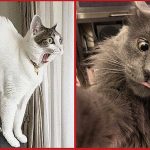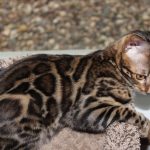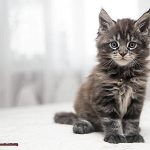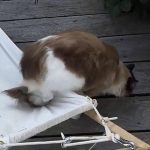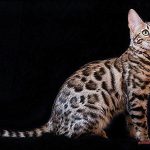As a devoted cat owner, you know that your feline friend’s well-being is of utmost importance. But when your beloved pet struggles with inflammatory bowel disease (IBD), finding the right nutrition becomes crucial to their health and happiness. It’s a tough situation for both you and your kitty, but don’t fret – we’re here to help.
With so many OTC cat food options available, it can be overwhelming to choose the best one for IBD. You have to consider a lot of factors such as ingredients, nutrient balance, texture, and taste that your cat will love. However, we’ve got you covered. We’ve done the research and compiled our top picks for the best OTC cat food for IBD.
In this blog post, we’ll discuss why nutrition is vital for cats with IBD. We’ll also talk about common ingredients to look out for (and avoid) when selecting cat food. Plus, we’ll provide specific brand recommendations that are worth considering.
Whether you’re an experienced cat owner or new to the game, this guide will offer valuable insights and help you make informed decisions about your furry friend’s diet. Ultimately resulting in a happier and healthier life for your beloved kitty.
What is IBD?
Inflammatory Bowel Disease (IBD) is a chronic and often perplexing condition that can affect cats of any age and breed. It happens when the immune system attacks the lining of the intestines, leading to chronic inflammation of the GI tract. This can cause a range of symptoms, including vomiting, diarrhea, weight loss, lethargy, lack of appetite, and abdominal pain.
There are several different types of IBD that can affect cats, including Lymphocytic-plasmacytic enteritis (LPE), eosinophilic gastroenteritis (EGE), and granulomatous enteritis. Each type has its own unique characteristics and treatment options, so it’s crucial to get an accurate diagnosis from your veterinarian.
Although there’s no permanent cure for IBD in cats, it can be managed with proper treatment. Treatment usually involves a combination of dietary changes, medications (such as corticosteroids or immunosuppressants), and supportive care. In some cases, surgery may be necessary to remove damaged or inflamed parts of the gastrointestinal tract.
When it comes to managing IBD in cats, diet plays an important role. Cats with IBD have sensitive stomachs and are more vulnerable to digestive issues. It’s essential to choose a food that is easy for your cat to digest. Look for foods that are labeled as “digestible” or “easy to digest,” as these typically contain high-quality proteins and low amounts of fat that can soothe your cat’s digestive system.
While selecting an OTC cat food for IBD, it’s equally important to pay attention to the ingredients list. Some ingredients like grains and artificial preservatives can be harder for cats to digest and may trigger inflammation in cats with IBD. Instead, look for foods that contain high-quality protein sources like chicken or fish and whole-food ingredients like fruits and vegetables.
It is important to keep in mind that every cat is unique, and what works well for one cat with IBD may not work as well for another. Consulting with your veterinarian will help in customizing a diet plan that caters to your cat’s specific needs and health history.
What to Look for in OTC Cat Food for IBD
However, by following these five sub-sections, you can make an informed decision that will support your cat’s digestive health and manage their symptoms.

Digestibility
The first and most crucial factor to consider is digestibility. Look for OTC cat foods that use high-quality protein sources like chicken or fish, which are easily broken down and absorbed by your cat’s digestive system. Foods with low fat content are also ideal as they can help soothe your cat’s inflamed digestive system.
Fiber Content
While too much fiber can irritate an inflamed digestive system, a moderate amount of soluble fibers like psyllium or beet pulp can be beneficial for cats with IBD. These fibers can regulate bowel movements and reduce inflammation.
Irritants and Allergens
Choose cat food that is free from potential irritants or allergens such as corn, wheat, soy, or artificial preservatives. Some cats with IBD may also be sensitive to certain types of protein, such as beef or dairy. Experiment with different brands and flavors until you find one that works best for your individual cat.
Formulation
Look for OTC cat foods that are specifically formulated for cats with digestive issues. These foods may contain prebiotics and probiotics that promote healthy gut flora and aid in digestion. Additionally, omega-3 fatty acids have anti-inflammatory properties that can help reduce inflammation, while antioxidants like vitamin E and C support overall health.
Natural Preservatives
Avoid OTC cat foods that contain artificial preservatives, colors, or flavors as they can be hard on a cat’s digestive system and even trigger IBD symptoms. Instead, opt for foods that use natural preservatives like tocopherols (vitamin E) or ascorbic acid (vitamin C).
Lastly, it’s essential to choose a cat food that your cat will actually eat. Even the healthiest food won’t do any good if your cat refuses to eat it. Consider trying out different flavors and textures to see what your cat prefers.
Benefits of Easy-to-Digest Foods
As an expert on cat food and IBD, I’m here to tell you about the benefits of easy-to-digest foods for cats with this condition.
Easy-to-digest foods are highly digestible and won’t cause a significant strain on your cat’s digestive system. These can include foods that are low in fat, moderate in protein, and high in fiber, such as cooked chicken or turkey, fish, and easily digestible carbohydrates like rice or sweet potato.
Studies have shown that easy-to-digest foods can help reduce inflammation in the digestive tract and promote healthy digestion and absorption of nutrients. This is crucial for cats with IBD as their digestive system is already inflamed and struggling to absorb nutrients properly. Furthermore, these foods can help prevent further damage to the intestinal lining – a common concern for cats with IBD.
When choosing OTC cat food, it’s important to read labels carefully as not all options are created equal when it comes to digestibility. Some may contain harder-to-digest ingredients like certain grains or fillers. Opting for a food specifically formulated for cats with digestive issues can help ensure its ingredients are gentle on your cat’s digestive system.
Ingredients to Avoid
If your feline friend is suffering from Inflammatory Bowel Disease (IBD), you know how frustrating it can be to find the right OTC cat food that won’t aggravate their condition. As an expert in this field, I’m here to guide you through the ingredients to avoid when selecting cat food for your IBD-afflicted pet.
Grains such as wheat, corn, and soy are some of the most common culprits that can cause inflammation in cats with IBD. These ingredients are often used as fillers in cat food, so it’s best to steer clear of them. Dairy products are another ingredient that should be avoided since cats are lactose intolerant and cannot digest milk products properly.
Artificial preservatives like BHA, BHT, and ethoxyquin should also be avoided because they have been linked to cancer and other health problems in cats. High levels of carbohydrates such as potatoes and peas can also cause inflammation in the gut and should be avoided as well.

It’s crucial to avoid foods that contain by-products or unnamed meat sources since they may contain low-quality protein sources that can be difficult for cats with IBD to digest. Instead, opt for cat foods that list named meat sources such as chicken or turkey as their top ingredients.
High-Quality Protein Sources
Choosing the right food for cats with IBD is crucial to their health and well-being. One of the most important factors to consider when selecting an OTC cat food is the quality of the protein sources. High-quality proteins are essential for cats with IBD, as they support their digestive system and provide them with the energy and nutrients they need to stay healthy.
What are some great sources of high-quality protein for cats with IBD? Let’s take a closer look at some options:
Lean Meats like Chicken, Turkey, and Fish
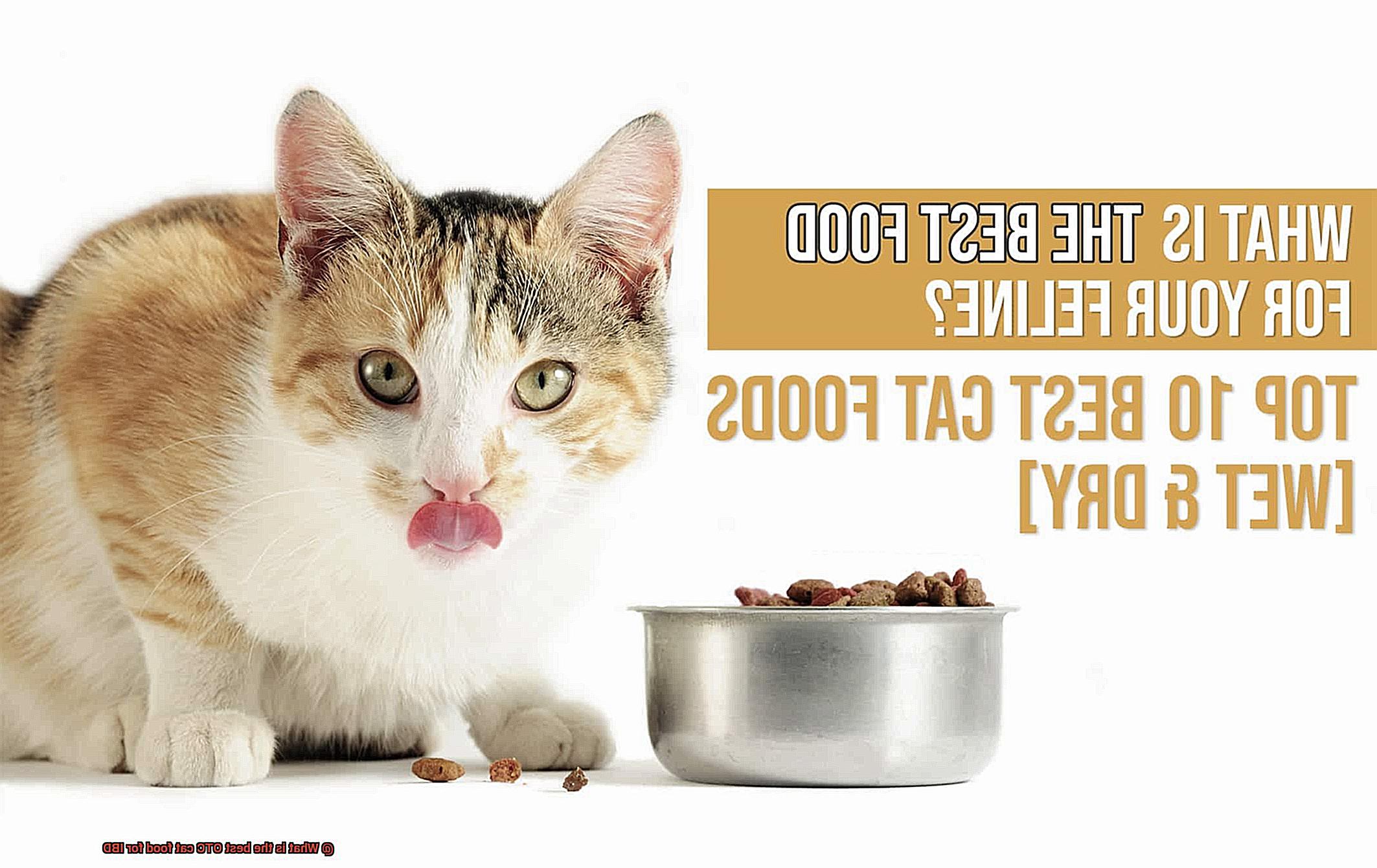
If you’re looking for a great source of high-quality protein for your cat with IBD, you can’t go wrong with lean meats like chicken, turkey, and fish. These meats are not only rich in protein but also contain essential amino acids that help support muscle growth and repair. Additionally, they are easy to digest, which is crucial for cats with sensitive digestive systems.
Eggs
Eggs are another fantastic source of protein for cats with IBD. They not only provide a good amount of protein but also contain essential vitamins and minerals that can help support your cat’s overall health. However, it’s important to note that some cats may be allergic to eggs. So if you’re introducing eggs into your cat’s diet, make sure to do it slowly and monitor their reaction.
Plant-Based Protein Sources: Peas, Lentils, and Chickpeas
For cats who have trouble digesting animal-based proteins, plant-based protein sources like peas, lentils, and chickpeas can be a good option. These foods are high in fiber and can help regulate digestion while providing a source of protein. However, it’s crucial to choose a cat food that contains a balance of both animal and plant-based proteins to ensure your cat is getting all the necessary nutrients.

Whole-Food Ingredients
Whole-food ingredients are a crucial element of cat food, especially for those with IBD. These natural and minimally processed ingredients provide all the necessary nutrients and vitamins that your cat needs to maintain optimal health.
Let’s explore some things that make whole-food ingredients so essential for cats with IBD:
High-quality Protein Sources
The first ingredient you should look for in your cat’s food should be a high-quality protein source like chicken, turkey, or fish. These proteins should be sourced from whole cuts of meat rather than by-products or meals. Whole cuts of meat are more nutrient-dense and easier for your cat to digest than by-products or meals, making them perfect for cats with sensitive stomachs.
Fruits and Vegetables
Fruits and vegetables are also essential for cats with IBD as they provide necessary vitamins and minerals that cats need to maintain optimal health. Look for products that contain fruits and vegetables such as sweet potatoes, spinach, carrots, and blueberries. These ingredients will help to boost your cat’s immune system and reduce inflammation.
Grains
Grains are another type of whole-food ingredient found in some cat foods. While some cats may have difficulty digesting grains, others may benefit from the additional fiber and nutrients they provide. If your cat has a grain allergy or intolerance, seek out grain-free options that use alternative sources of carbohydrates such as potatoes or peas.
Finding the Right OTC Cat Food for Your Cat’s Needs
It’s essential to understand what IBD is and how it affects your cat’s digestive system before selecting a suitable diet. IBD causes inflammation of the digestive tract, leading to symptoms such as vomiting, diarrhea, and weight loss. A suitable diet is crucial for your cat’s overall health and well-being.
When selecting an OTC cat food for your cat with IBD, a limited ingredient diet is one of the essential factors to consider. This type of diet contains only a few simple ingredients, which can avoid triggering your cat’s digestive system. Some of the best limited ingredient diets include Natural Balance L.I.D. Limited Ingredient Diets, Blue Buffalo Basics Limited Ingredient Diet, and Purina Pro Plan Veterinary Diets HA Hydrolyzed Formula.
The protein source in your cat’s food is another crucial factor to consider. Certain types of proteins such as chicken or beef can be challenging for cats with IBD to digest. Therefore, choosing novel protein sources like duck or venison may be easier for your cat’s digestive system. Hill’s Prescription Diet z/d Original Skin/Food Sensitivities Dry Food, Royal Canin Veterinary Diet Ultamino Dry Cat Food, and Instinct Limited Ingredient Diet Grain-Free Recipe with Real Rabbit are great options for novel protein sources.
Fiber content is also essential in your cat’s food for their health and well-being. Consult with your vet to determine what type of fiber content is best for your cat’s specific needs. Some cats with IBD benefit from a higher fiber diet, while others may do better with less fiber. Purina ONE Sensitive Systems Adult Dry Cat Food, Hill’s Science Diet Adult Sensitive Stomach and Skin Chicken and Rice Recipe Dry Cat Food, and Blue Buffalo Wilderness High Protein Grain-Free Natural Adult Dry Cat Food are great options for fiber content.
2rAUhE3ZyDc” >
Conclusion
In conclusion, selecting the best OTC cat food for IBD may appear intimidating, but it is a crucial aspect of your cat’s well-being and satisfaction. A balanced diet plays a vital role in managing IBD symptoms in cats, including reducing inflammation, promoting healthy digestion, and preventing further damage to the intestinal lining. When choosing an OTC cat food for your feline friend with IBD, prioritize foods that are easy to digest, contain high-quality protein sources such as chicken or fish, and whole-food ingredients like fruits and vegetables.
It’s equally essential to steer clear of potential irritants or allergens such as grains and artificial preservatives. Moreover, seeking guidance from your veterinarian can help you tailor a diet plan that caters specifically to your cat’s individual needs and medical history.
To help you get started on the right track, some of the best OTC cat food options for cats with IBD include limited ingredient diets like Natural Balance L.I.D. Limited Ingredient Diets, Hill’s Prescription Diet z/d Original Skin/Food Sensitivities Dry Food, and Instinct Limited Ingredient Diet Grain-Free Recipe with Real Rabbit. Additionally, novel protein sources like duck or venison may be more comfortable for your cat’s digestive system.

